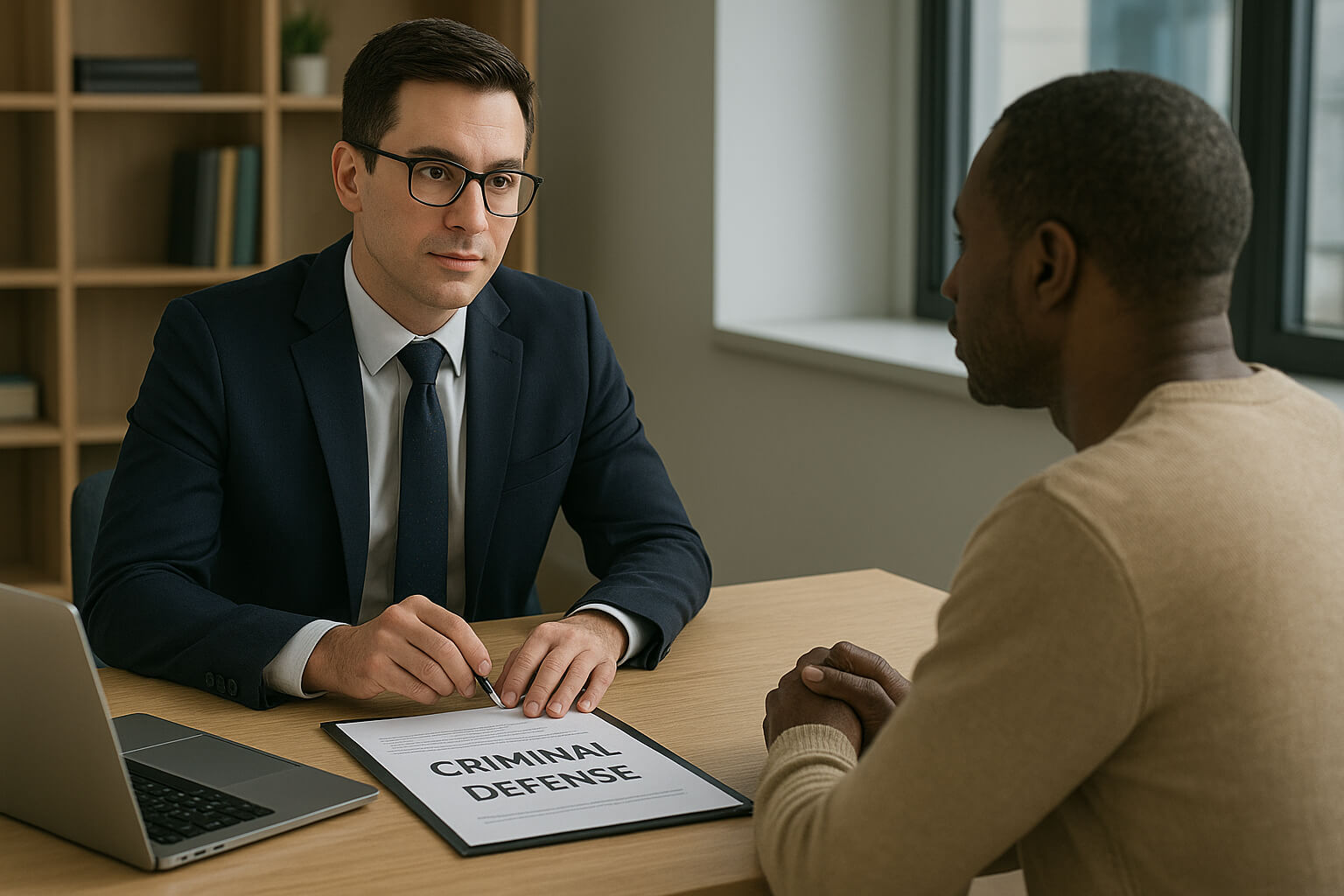September 17, 2025

Being charged with a crime is one of the most stressful and life-altering events a person can experience. Whether you're facing a misdemeanor or a serious felony, the decisions you make in the early stages—including who you hire to represent you—can significantly affect the outcome of your case.
A reputable criminal defense attorney is more than just a courtroom advocate—they’re your legal strategist, your protector, and in many ways, your lifeline through one of the most challenging periods of your life. But finding the right one can be overwhelming, especially when time is critical.
This comprehensive guide walks you through everything you need to know to find and choose a reputable, experienced, and trustworthy criminal defense lawyer.
Not all attorneys are equipped to handle criminal cases. Some focus on civil litigation, real estate, family law, or personal injury. Criminal defense law is a specialized area that requires deep knowledge of the criminal justice system, trial procedure, constitutional protections, and negotiation with prosecutors.
When researching lawyers, ask:
Also, find out whether they’ve taken cases to trial. Many criminal cases are resolved through plea bargains, but if your case does go to trial, you want an attorney who is comfortable in front of a jury, not one who avoids the courtroom.
For a real-world look at how experienced lawyers handle complex charges, read Case Study: Defending a Client Against Federal Drug Trafficking Charges.
Your criminal defense attorney must be someone you can trust and communicate with clearly and comfortably. Facing a criminal charge often comes with anxiety, confusion, and fear. Your lawyer should act as your guide through the legal system—explaining what’s happening, what your options are, and what to expect next.
Consider these questions when evaluating communication:
You should never feel rushed or brushed off. A strong attorney will take the time to educate you about your rights, involve you in key decisions, and treat your case with the seriousness it deserves.
Remember: legal knowledge is essential, but client communication builds trust and helps you make informed decisions during what may be the most pivotal time in your life.
For more insights on how communication shapes legal outcomes, see Why Communication Matters When Choosing a Law Firm.
Legal defense is an investment, but it shouldn’t be a mystery. One of the most important aspects of hiring a criminal defense attorney is understanding how they charge and what’s included in their services.
There are typically three common billing models:
Key things to clarify:
Be wary of lawyers who offer vague answers or quote unusually low prices without explaining what’s included. Cheap legal fees can sometimes result in less attention to your case, delays, or limited availability. That said, high cost alone doesn’t guarantee better service—so focus on transparency and fit.
For a deep dive into how legal fees work in criminal cases, check out A Guide to Fee Structures for Criminal Defense Cases.
Before you hire any professional, you check reviews—and the same should go for legal representation. Your lawyer’s reputation says a lot about their professionalism, work ethic, and ability to secure favorable outcomes.
Here’s how to evaluate a defense lawyer’s reputation:
Keep in mind: one or two bad reviews don’t tell the whole story, but a consistent pattern of negative feedback—especially about ethics, communication, or fees—should give you pause.
For examples of strong legal outcomes, review A Look at Our Verdicts and Settlements.
Once you’ve narrowed your list, schedule consultations with two or three attorneys. Many defense lawyers offer free or low-cost initial consultations, giving you a chance to assess their style, professionalism, and approach.
Here’s how to make the most of the meeting:
Most importantly, trust your gut. If you feel a disconnect, or sense that the attorney isn’t truly invested, keep looking. The lawyer you choose will be your advocate, strategist, and defender—you need someone who believes in your case and takes it seriously.
Facing criminal charges can turn your world upside down. The fear, uncertainty, and potential consequences—fines, jail time, a permanent record—can feel crushing. But remember this: You are not alone, and you have rights.
Choosing the right criminal defense lawyer is not just about checking credentials or comparing fees. It’s about finding someone who:
When your future is on the line, you need more than legal advice—you need a powerful ally. Take your time, ask the right questions, and choose an attorney who will treat your case like it matters—because it does.
Stay up to date with the latest tips, expert insights, product reviews, and step-by-step guides to help you grow, create, and succeed—no matter your industry or passion.